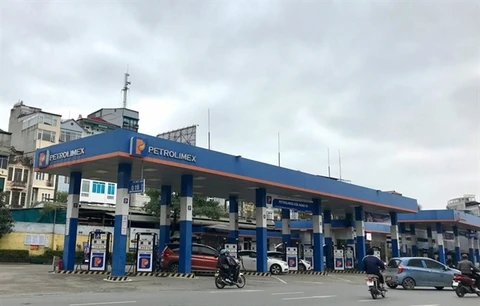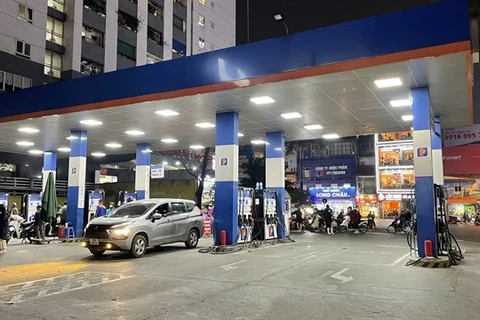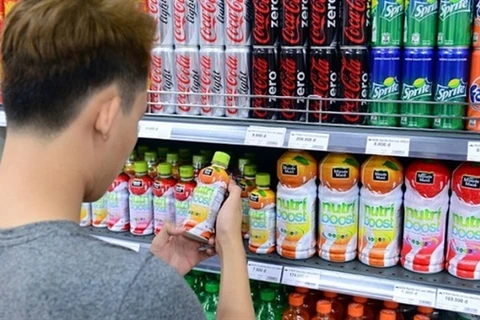Hanoi (VNS/VNA) - A draft proposal to increase special consumption tax on alcoholic beverages may hurt the Vietnamese beverage industry's ability to compete on their home turf, putting the entire supply chain at risk, said industry insiders.
Lam Du An, Deputy General Director of the Saigon Beer-Alcohol-Beverage Corporation (SABECO), said since 2021, the company's revenue has decreased by 10-15% compared to 2019. The company reported a 7% decrease in revenue in 2022 and an 11% decrease in revenue in 2023, with a pre-tax profit decrease of 23%.
An said: "Input costs and raw materials including prices for hops, cans and bottle caps, various auxiliary materials, and transportations, among others, have increased significantly. Producers are facing input cost increases of 20%-40% while consumption demand has been in sharp decline and prices cannot be increased further."
Dau Anh Tuan, Deputy General Secretary of the Vietnam Chamber of Commerce and Industry (VCCI) and head of the VCCI’s Legal Department, said that the industry has been struggling to recover from the COVID-19 pandemic and global geopolitical tension. Meanwhile, there has been talk among lawmakers that sugary beverages should be the next in line to be subjected to a special consumption tax.
Vice Chairman of the Vietnam Association of Financial Investors (VAFI) Nguyen Hoang Hai said that paying additional tax will erode Vietnamese beverage makers' competitive advantages. Over the long term, it can hurt their ability to invest in new technologies or expand production. To make matters worse, it may allow foreign players to swoop in to claim additional market shares from domestic players.
"It is well-known there is rampant tax evasion in the informal sector of the industry," Hai said.
"Some companies deliberately lowered their sales to keep tax low. Now adding a tax on low-priced beverage products will encourage more tax evasion."
Representatives from the industry have long called for greater support from the National Assembly and the Government so that any new tax policies will be studied and reviewed carefully to ensure fairness and balance to all players, given the market's conditions.
Nguyen Duy Hung, Vice Chairman of the VBA, expressed concerns over the potentially severe impacts on the industry's supply chain and consumers.
He said: "The Vietnam Beer-Alcohol-Beverage Association (VBA) proposes that the National Assembly and the Government consider delaying the amendment of the Special Consumption Tax Law until at least 2025, to create conditions for Vietnamese beverage makers to recover, stabilise and gradually develop."
Hai said introducing new tax policies without careful study and consideration of the market conditions could lead to a situation in which few companies will benefit while damaging the State budget and consumers' interests.
"The mixed tax regime may not be a suitable method for Vietnam. Considering the reality of its market conditions, I believe the most feasible, simple, and fair method is applying relative tax rates for beverage products," Hai added.
In a recent research by the Central Institute for Economic Management (CIEM), a 10% increase in tax can significantly reduce the industry's output.
Nguyen Thị Minh Thao, head of CIEM's Department of Business Environment and Competitive Capacity Research, said the proposed trajectory for increasing tax by the Ministry of Finance gives little time for the industry to prepare and should be studied further./.
Lam Du An, Deputy General Director of the Saigon Beer-Alcohol-Beverage Corporation (SABECO), said since 2021, the company's revenue has decreased by 10-15% compared to 2019. The company reported a 7% decrease in revenue in 2022 and an 11% decrease in revenue in 2023, with a pre-tax profit decrease of 23%.
An said: "Input costs and raw materials including prices for hops, cans and bottle caps, various auxiliary materials, and transportations, among others, have increased significantly. Producers are facing input cost increases of 20%-40% while consumption demand has been in sharp decline and prices cannot be increased further."
Dau Anh Tuan, Deputy General Secretary of the Vietnam Chamber of Commerce and Industry (VCCI) and head of the VCCI’s Legal Department, said that the industry has been struggling to recover from the COVID-19 pandemic and global geopolitical tension. Meanwhile, there has been talk among lawmakers that sugary beverages should be the next in line to be subjected to a special consumption tax.
Vice Chairman of the Vietnam Association of Financial Investors (VAFI) Nguyen Hoang Hai said that paying additional tax will erode Vietnamese beverage makers' competitive advantages. Over the long term, it can hurt their ability to invest in new technologies or expand production. To make matters worse, it may allow foreign players to swoop in to claim additional market shares from domestic players.
"It is well-known there is rampant tax evasion in the informal sector of the industry," Hai said.
"Some companies deliberately lowered their sales to keep tax low. Now adding a tax on low-priced beverage products will encourage more tax evasion."
Representatives from the industry have long called for greater support from the National Assembly and the Government so that any new tax policies will be studied and reviewed carefully to ensure fairness and balance to all players, given the market's conditions.
Nguyen Duy Hung, Vice Chairman of the VBA, expressed concerns over the potentially severe impacts on the industry's supply chain and consumers.
He said: "The Vietnam Beer-Alcohol-Beverage Association (VBA) proposes that the National Assembly and the Government consider delaying the amendment of the Special Consumption Tax Law until at least 2025, to create conditions for Vietnamese beverage makers to recover, stabilise and gradually develop."
Hai said introducing new tax policies without careful study and consideration of the market conditions could lead to a situation in which few companies will benefit while damaging the State budget and consumers' interests.
"The mixed tax regime may not be a suitable method for Vietnam. Considering the reality of its market conditions, I believe the most feasible, simple, and fair method is applying relative tax rates for beverage products," Hai added.
In a recent research by the Central Institute for Economic Management (CIEM), a 10% increase in tax can significantly reduce the industry's output.
Nguyen Thị Minh Thao, head of CIEM's Department of Business Environment and Competitive Capacity Research, said the proposed trajectory for increasing tax by the Ministry of Finance gives little time for the industry to prepare and should be studied further./.
VNA

























